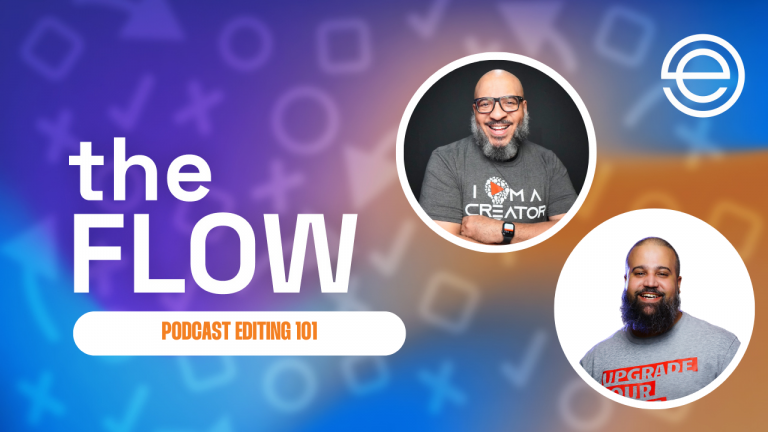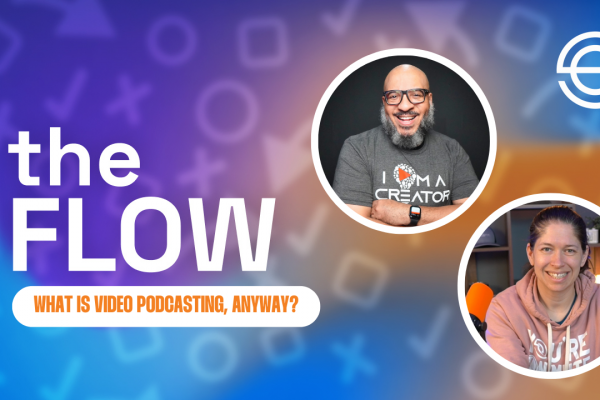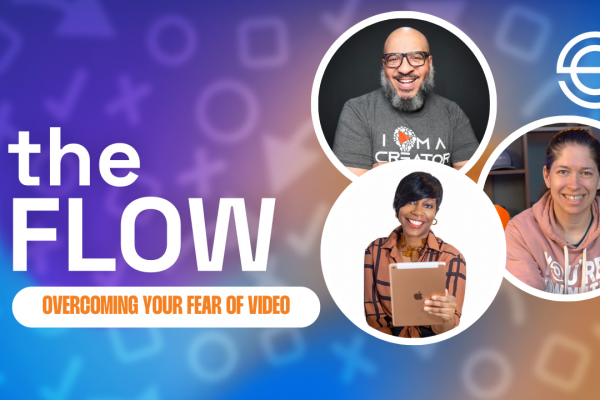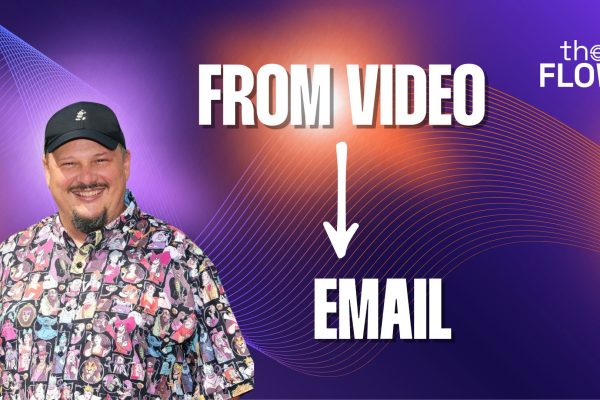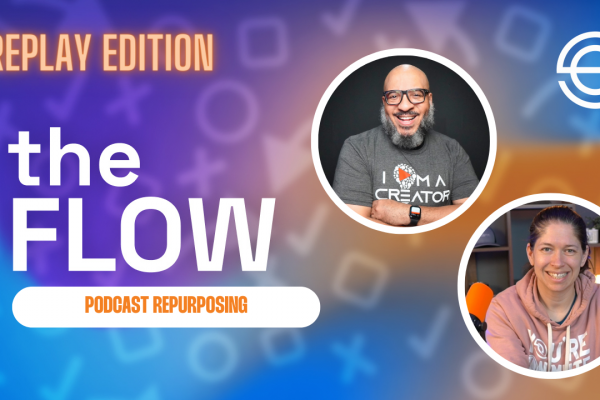Podcast editing. Whether you’re brand new to podcasting or you’ve been at it for a bit, you’ve likely asked yourself about editing. How hard is it? How important is it? When do you need to start thinking about or planning for editing?
In this article, we’re answering these questions:
- Do you need a podcast editor?
- How should you edit your podcast?
- What are some pro tips and tricks for success?
Watch the video podcast episode
Catch The Flow by Ecamm live every Tuesday at 12pm Eastern on YouTube. Audio-only episodes drop on Tuesdays on your favorite podcast platform.
Shownotes and episodes available at flow.ecamm.com
Do you need a podcast editor?
Yes and no. Having a podcast editor can be extremely helpful, but you’ll actually benefit from going through the process of editing your own podcast… even if it’s just for the first few months or so. Why?
First of all, you’ll be able to communicate to your podcast editor a lot easier and you’ll also know and have a realistic view of what the process entails. It might not be the hardest thing, but you’ll also know that it’s a time consuming process, so you’ll value your editor’s time that much more and understand what you’re asking out of that person. Win win.
Editing the audio is actually pretty simple, but it does depend on the kind of podcast you’re doing. If it’s just you (a solo show), it’s going to be much easier than if you have a co-host or are bringing on guests. Once you add more people to the show, you’ll want to make sure you have the isolated audio tracks so that you can make edits if someone accidentally steps over or talks over somebody during a crucial point in your podcast.
Starting off as your own podcast editor is also going to help you be a better podcaster. If you’re spending a lot of time correcting things like fade lines (when you trail off your sentences), you may be more inclined to fix that as you’re recording rather than leaving it as something someone else needs to edit out later.
How should you edit your podcast?
There are tons of great apps out there to make podcast editing a breeze. If you’re just starting out, go with Garage Band. It’s free and it’s already on your Mac. If you want to level up, but keep things easy, Descript is an incredible app that allows you to search and make edits to your audio using the transcript. No editing skills required. With Descript, you can also do things like record your voice and overdub over any mistakes you make. Plus, it’ll give you the transcript for your show notes and/or a blog post. We used Descript to create this blog post.
Some other great editing tools are Logic, Audition, Audacity, and even Final Cut Pro, if you’re going with a video first podcast.
What are some pro tips and tricks for success?
First thing is to get started. Because your first podcast will never be your best podcast. And the whole thing is that you need to get it done and over with so that you can get to your second, your third, your fifth, and however many more that you continue to do.
And you will be learning and getting better every time that you do it. But it starts with one. One is so much more valuable than zero could ever be because every experience starts with one. If you’ve been thinking about it, and you’ve been on the fence, we highly recommend to just get started.
The second tip is to practice. Many people don’t start podcasting because they’re uncomfortable with their voice or being on camera. Just spending a few seconds each day to record yourself, even if you just delete it, will help you get more comfortable and confident with the process.
Our final tip is to push yourself to do video first. Even if you don’t use the video, it’ll make it an easier editing process to see the visual queues. And then you’ll have the video clips if you need them down the road for promotion or anything else.
Get Into The Flow with Ecamm
Want to catch The Flow live? Join us every Tuesday at 12pm Eastern on YouTube or listen wherever you get your podcasts.
If you have any questions for us, please send them to flow@ecamm.com or join us live.

